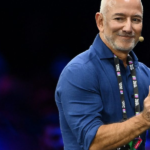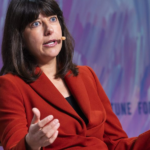“I see a lot of young people now—they’re wanting to take the easy route without working so hard,” she exclusively told Fortune. “But the truth is, you have to make the sacrifices. You have to put yourself through a lot of discomfort.”
Sabry knows what it means to lean into discomfort. As the first Egyptian astronaut—and the first Arab and African woman in space—her career has been shaped by brutally early mornings, periods of total isolation, and even digital detoxes from social media to toughen her mental focus.
Afterall, it’s not like she actually enjoys those 4:30 a.m. morning alarms. Instead, she describes it like a plank: The longer you hold onto the uncomfortable position, the more you’ll feel the benefits later. And Sabry even has some special astronaut training up her sleeve that helps you sit with discomfort.
“You can make yourself excited about it,” the 32-year-old, who is also the executive director of Deep Space Initiative—a nonprofit she founded to make space more accessible—co-founder of the Egyptian Space Agency’s Ambassador program, and researcher for the NASA-funded Humanspaceflight lab, said.
“We have so much control over our minds, it’s ridiculous that they’re not teaching us this in school. A lot of the astronaut training that I had to do was psychological; it was all about switching these moments of stress with visualizing a peaceful place.”
Before flying on Jeff Bezos’s Blue Origin’s New Shepard rocket on Aug. 4, 2022, Sabry trained herself to feel at ease because “when you’re on a rocket, and you have to have clarity.” And she says anyone can do it, by simply telling their brains that that feeling of sweaty palms and panic is evidence you’re growing—so instead of resisting it, lean in and use it as a signal that you’re on the verge of progress.
“So you switch the discomfort from negativity to positivity. And you know that because you’re feeling discomfort and because you’re feeling you’re getting resistance, that it means you’re actually doing something great—and if what you’re doing wasn’t big enough, then you wouldn’t get so much resistance, or you wouldn’t feel this much discomfort.”









